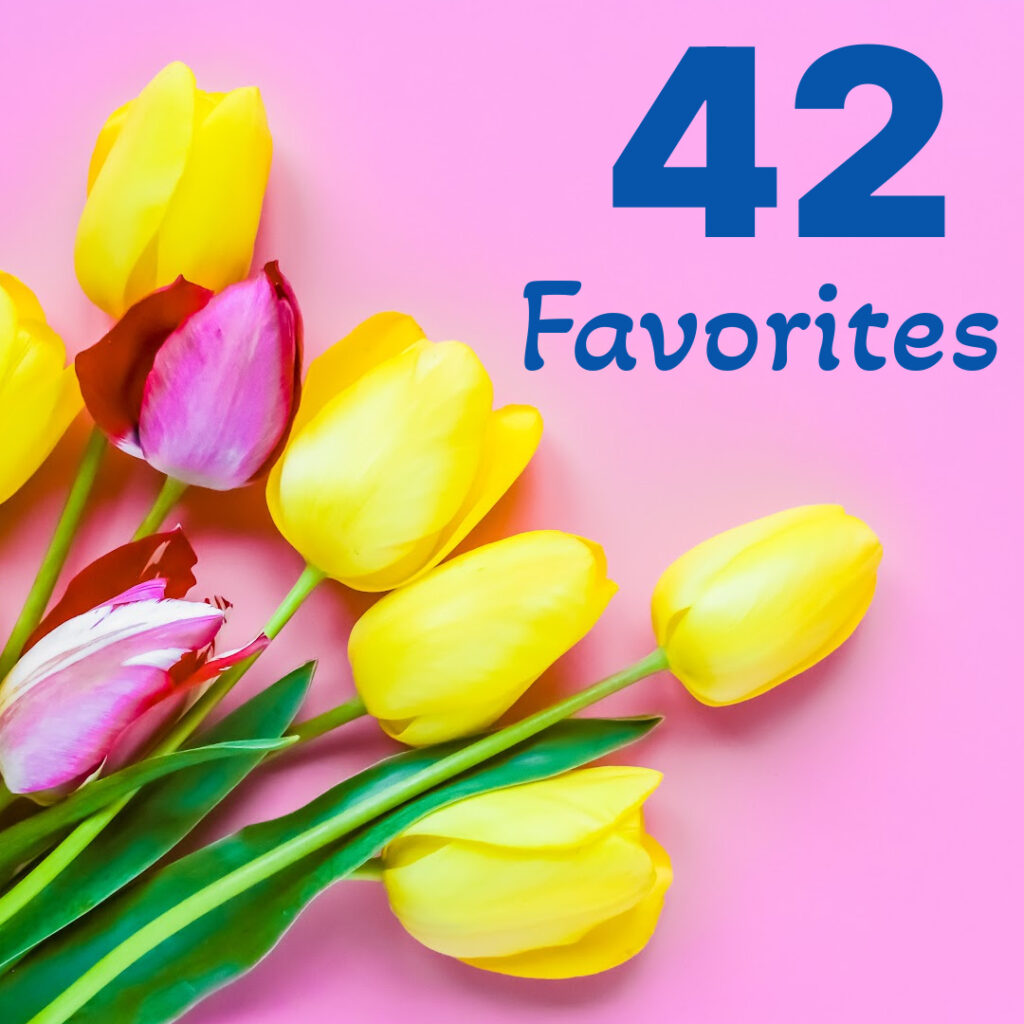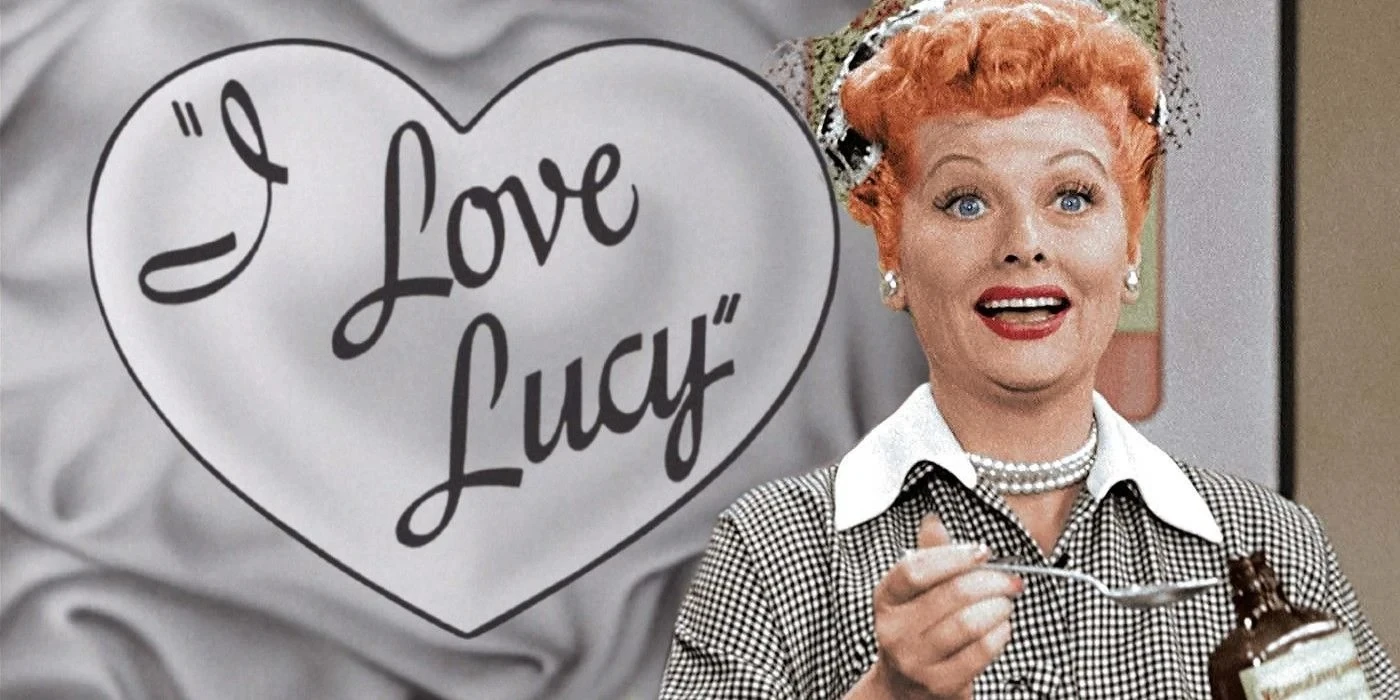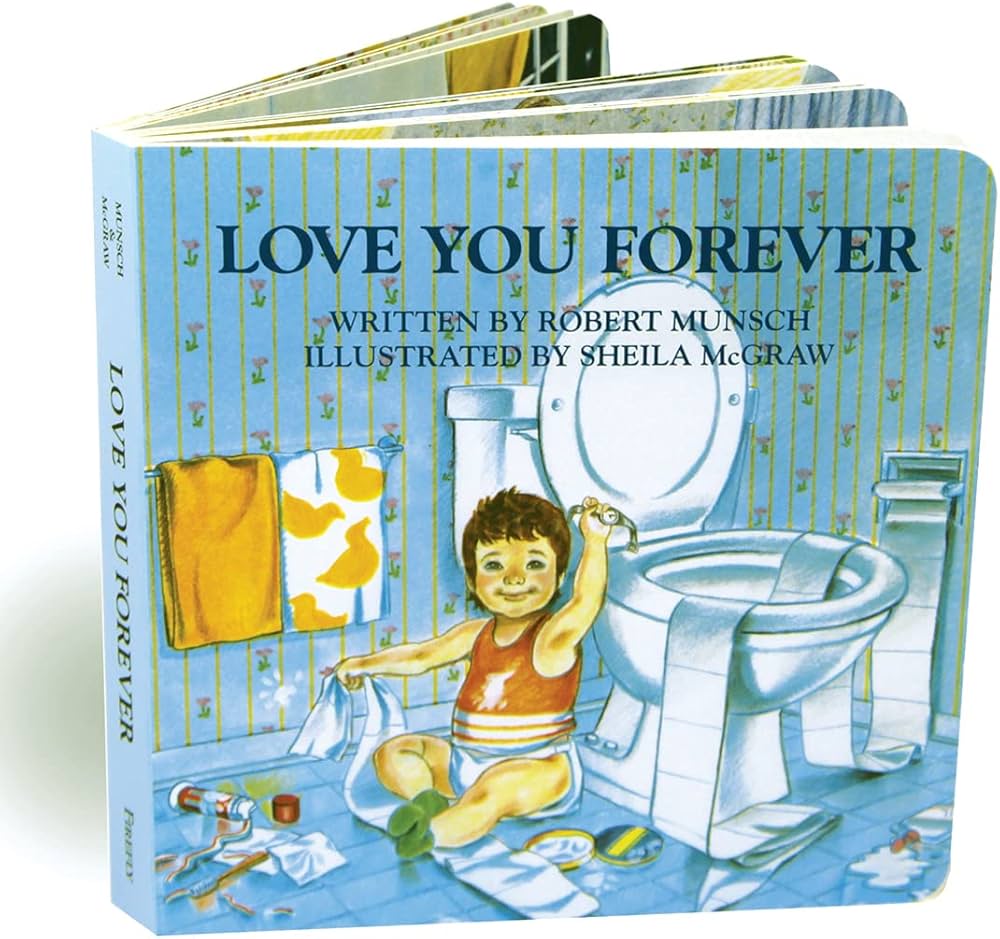We all have favorites, whether we admit to them or not. I can’t begin to explain the science behind why we have the preferences that we do, but a quick Google search tells me that identifying and naming favorites has numerous benefits. Children name favorites as a way of helping them form a personal identity and make sense of a complex world. As adults, the act of choosing favorites may be less psychologically necessary, but open favoritism does aid in decision-making (“I always get the chocolate cake for dessert”), allows us to express our personal brand (“she’s the girl who wears purple”), and helps us foster connections with others (“we are a Longhorn family”).
Personally, choosing favorites is one of my favorite things—right up there with making cheesy puns. 😉 And since today is my birthday, I decided to indulge myself with this quirky post of my personal favorites—42 of them (though we all know 28 is my favorite number) since I am 42 today!
As you’ll see, while I LOVE naming favorites, I’m not always great at narrowing those favorites to a single top choice. Some might call it indecision; I prefer to see it as a sign a sign of an enthusiasm and positivity.

JUST-FOR-FUN FAVORITES
1. FAVORITE COLOR: pink, yellow, turquoise
2. FAVORITE FLOWER and/or PLANT: tulips, jacaranda trees
3. FAVORITE GEMSTONE: opal
4. FAVORITE SCENT: vanilla, plumeria, cinnamon
5. FAVORITE ANIMAL: koala, giraffe
6. FAVORITE HOBBY: reading, writing, exploring personality types, making lists
7. FAVORITE CITY: Florence, Italy

FOODIE FAVORITES
8. FAVORITE FOOD: yogurt
9. FAVORITE BEVERAGE: Dr. Pepper Zero Sugar, dessert-flavored hot tea
10. FAVORITE FRUIT: nectarines, cherries, mango
11. FAVORITE VEGETABLE: cauliflower, asparagus, mushrooms, hearts of palm
12. FAVORITE CANDY: Rolo, peanut butter M&Ms, candy corn
13. FAVORITE MEAL: seared salmon salad with a side of roasted vegetables or sweet potato fries
ENTERTAINMENT FAVORITES
14. FAVORITE TV SHOW: I Love Lucy

15. FAVORITE MOVIE: Les Misérables (both the 1998 version with Liam Neeson and the 20212 musical with Hugh Jackman), The Count of Monte Cristo, Beauty and the Beast (both the 1991 animated version and the 2017 musical), Ever After <—— Coincidentally these are all set in France!
16. FAVORITE MUSIC GENRE: show tunes, contemporary singer/songwriter folk, any and all Christmas music, traditional hymns
17. FAVORITE ANIMATED CHARACTER: Eeyore
18. FAVORITE DISNEY PRINCESS: Cinderella
19. FAVORITE GAME: Scattegories, Rummy, Upwords
20. FAVORITE SPECTATOR SPORT: gymnastics
FAITH-ADJACENT FAVORITES
21. FAVORITE SCRIPTURE: Proverbs 3:5-6 (“Trust in the Lord with all your heart and lean not on your own understanding; in all your ways submit to him, and he will make your paths straight.“) and Philippians 4:4-8 (“Rejoice in the Lord always. I will say it again: Rejoice! Let your gentleness be evident to all. The Lord is near. Do not be anxious about anything, but in every situation, by prayer and petition, with thanksgiving, present your requests to God. And the peace of God, which transcends all understanding, will guard your hearts and your minds in Christ Jesus. Finally, brothers and sisters, whatever is true, whatever is noble, whatever is right, whatever is pure, whatever is lovely, whatever is admirable—if anything is excellent or praiseworthy—think about such things.”)

22. FAVORITE BOOK OF THE BIBLE: Genesis, Romans (but really all the epistles), Psalms
23. FAVORITE BIBLICAL FIGURE (BESIDES JESUS): Joseph (the favorite of Jacob’s sons)
24. FAVORITE SPIRITUAL HERO: Corrie ten Boom
25. FAVORITE HYMN: “It Is Well With My Soul”
BOOKISH FAVORITES
26. FAVORITE SUBJECT IN SCHOOL: Literature when I was a student; History now as a teacher to my kids
27. FAVORITE TOPIC TO STUDY: apologetics, sociology, psychology
28. FAVORITE CHILDREN’S PICTURE BOOK: I’ll Love You Forever

29. FAVORITE BOOK SERIES: Harry Potter
30. FAVORITE AUTHOR: Fredrik Backman, Lian Moriarty, Amor Towles
31. FAVORITE BOOK GENRE: contemporary fiction that leans literary
32. FAVORITE BOOK STRUCTURE: epistolary
33. FAVORITE CLASSIC THAT I READ IN SCHOOL: To Kill a Mockingbird, And Then There Were None
34. FAVORITE BOOK FROM MY YOUTH: Sweet Valley Twins: The Magic Christmas
(Note that I haven’t tried to name an all-time favorite book, that’s way too hard. But you can see a collection of my MANY lifetime favorites on Goodreads.)
SEASONAL FAVORITES
35. FAVORITE SEASON: autumn

36. FAVORITE MONTH: October
37. FAVORITE HOLIDAY: Thanksgiving through New Year (the whole Christmas season)
38. FAVORITE CHRISTMAS MOVIE: It’s a Wonderful Life, White Christmas, The Best Christmas Pageant Ever
FAMILY FAVORITES
39. FAVORITE FAMILY POSSESSIONS: our Christmas ornament collection
40. FAVORITE THING ABOUT OUR FAMILY: that Luke works from home and we learn from home and can all be together all the time
41. FAVORITE FAMILY TRADITION: nightly prayer time and blessing
42. FAVORITE FAMILY MEMORY: with my family of origin—nightly rounds of Skip-Bo (with ice cream!); with my family today—introducing Kali, Sully, and Charlie to Nico and seeing our family complete for the first time

I hope you enjoyed learning a little more about me with this list. And I hope that it inspires you to compile a list of your own favorites! (If you do, I’d be honored if you’d share it as a special birthday gift to me!)

